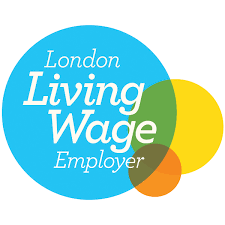Top tips for job hunting from Fair Finance
Employment is one of the many areas that has been affected by the Covid-19 pandemic. Official estimates are that there are currently around 1.72 million people unemployed in the UK, around 5% of the working age population. This could rise even further over the next few months to 2.6 million (7.5%) by the middle of 2021.
With numbers like this, you may well find the prospect of applying for a new job very daunting indeed. Whether you are applying for your first ever job, need to find a new job because of Covid-19, or just want to change your job it can be difficult to know where to start.
Everything you’ll need to get a job. In this article we look at:
- Where to look for a job
- What help is available
- Keeping your skills up to date
- What to include in a winning CV
- How to prepare for an interview
Where to look for a job
Top 3 ways to find a job:
1. Online
There are many job websites. Some of the most popular include:
2. Companies
If there is a company you are interested in, find out all you can about them from their website and social media pages. If they are advertising jobs you can apply directly to them. But even if not, it may be worth getting in touch with them to let them know you are interested and ask to be kept informed of any suitable jobs that may come up in future.
3. Word of mouth
Talk to friends and family about the kind of job you are looking for. Someone may be able to suggest companies to apply to, or even have contacts that could help you.
What government help is available
The government’s Plan for Jobs scheme aims to get people of all ages back to work. As part of this it is offering three schemes to help:
Kickstart
The Kickstart scheme is aimed at 16-24 year olds who are currently claiming Universal Credit. It can be of particular help if you are vulnerable to the risk of long-term unemployment. Kickstart could provide you with a six month paid job with a local employer.
You can find out more on the Kickstart website.
SWAP (Sector-based Work Academy Programmes)
The SWAP scheme is aimed at jobseekers who are currently claiming either Universal Credit, Job Seekers Allowance or Employment and Support Allowance. A SWAP programme is based in a work sector, for example construction, logistics or care. It will last up to six weeks and includes training, work experience, and help to get a job interview.
You can find out more on the Job Help website. If you have a work coach, for example through Universal Credit, you should also discuss it with them.
NEA (New Enterprise Allowance)
This scheme can provide money and support to anyone receiving the above benefits either to start a new business or develop their existing one. The scheme includes a mentor, a weekly business allowance and the chance to apply for a start up loan.
You can find out more on the Gov UK website. As with the SWAP scheme, if you have a work coach you should also discuss it with them.
How to get your skills up to date
However you are applying for jobs, it is also important to keep your skills as up to date as you can. You need to focus on two particular areas.
1. Job-related skills
You need to be confident that you have all the skills needed to do the job well, and be able to convince the employer you are right for the job. It is a good idea to keep these skills up to date in any way that you can, and also to constantly try to learn new skills relevant to the job.
There are many online resources available to help you learn. For example, the government website The Skills Toolkit, and Google Digital Garage offer a variety of technical and business courses, mostly for free. Reed UK also has a comprehensive range of courses on business and vocational topics.
2. Transferable skills
There are also general skills - known as transferable skills - which most employers will be looking for, whatever the specific job. These include:
- Communication and interpersonal skills
- Ability to adapt to change
- Creativity
- Problem-solving
- Flexibility
- People management skills
- Good time management.
When applying for a job, it’s really important to read the advert carefully so that you understand which of the above transferable skills they might be particularly interested in. They are likely to ask you about these if you get an interview, so try to think of examples of situations where you have previously been able to demonstrate these skills.
What to include in a winning CV
When applying for a job, make sure that you give the employer information about you in the format they require. For example, they may ask you to complete an online application form, or email them a copy of your CV (Curriculum Vitae).
The three golden rules of a winning CV are:
1. Include all the following essential information about yourself. Make sure that it is correct and up to date, and that it is easy to find:
- Name and contact details
- A personal statement ie a brief summary about you
- Employment history and work experience
- Education and qualifications
- Other relevant skills.
2. Tailor your CV to the job you are applying for. Try and use words from the advert when describing your work experience so that it catches the employer’s attention. Don’t worry if you don’t have every single thing they are looking for, but draw attention to what you do have. You need to sell yourself. It is worth applying for fewer jobs and taking the time to make your CV relevant rather than sending out exactly the same information to everyone.
3. Proofread your CV carefully before sending. If possible, ask someone else to have a look through it as well. It is very easy to miss small mistakes, but they can jump out at the employer and be off-putting.
How to prepare for an interview
If you are lucky enough to get an interview, well done! It is a good indication that the employer is interested in you. If you prepare well you may be in with a good chance of getting the job.
There are three things that you can do to prepare:
1. Do your homework
You won’t be expected to know everything there is to know about the company, but it helps to have as much background information as you can. As soon as you get an interview date, do your best to check their website and social media feeds regularly for any current news. It’s also a good idea to absorb some general information about the company: for example what are its main products and services, who are its key people, where is their HQ, how many employees are there etc.
Taking time to look into this information will also help when you are given the opportunity to ask questions in the interview. You will be able to demonstrate that you have a genuine interest in the company.
2. Be at your best
Whether you have an online or face to face interview, make sure that you are punctual, friendly and polite. If possible, try to check out - for example from their website - how people tend to dress so that you can give the impression of fitting in well with the culture of the company.
If you are doing a remote interview, do test out all your technology in advance so that you are confident it will not let you down on the day. Even better, see if a family member or friend can do a mini test interview with you to give you experience of communicating on screen. They may also be able to help you by pointing out any annoying habits that you may not be aware of.
3. Prepare your answers
Try and put yourself in the shoes of the employer and think of the questions that you would want to ask someone in an interview. You can then prepare your answers and practise speaking them out loud. It doesn’t matter if you can’t remember all the details on the day itself, at least you can be confident that you will be able to say something relevant.
Remember to think of relevant personal examples to include in your answers. You need to give them as much information as you can to convince them you are the right person for the job.
Good luck with your job search, and we hope that these tips from Fair Finance are helpful to you.
Remember to check back here soon for more lifestyle and financial tips from Fair Finance.




